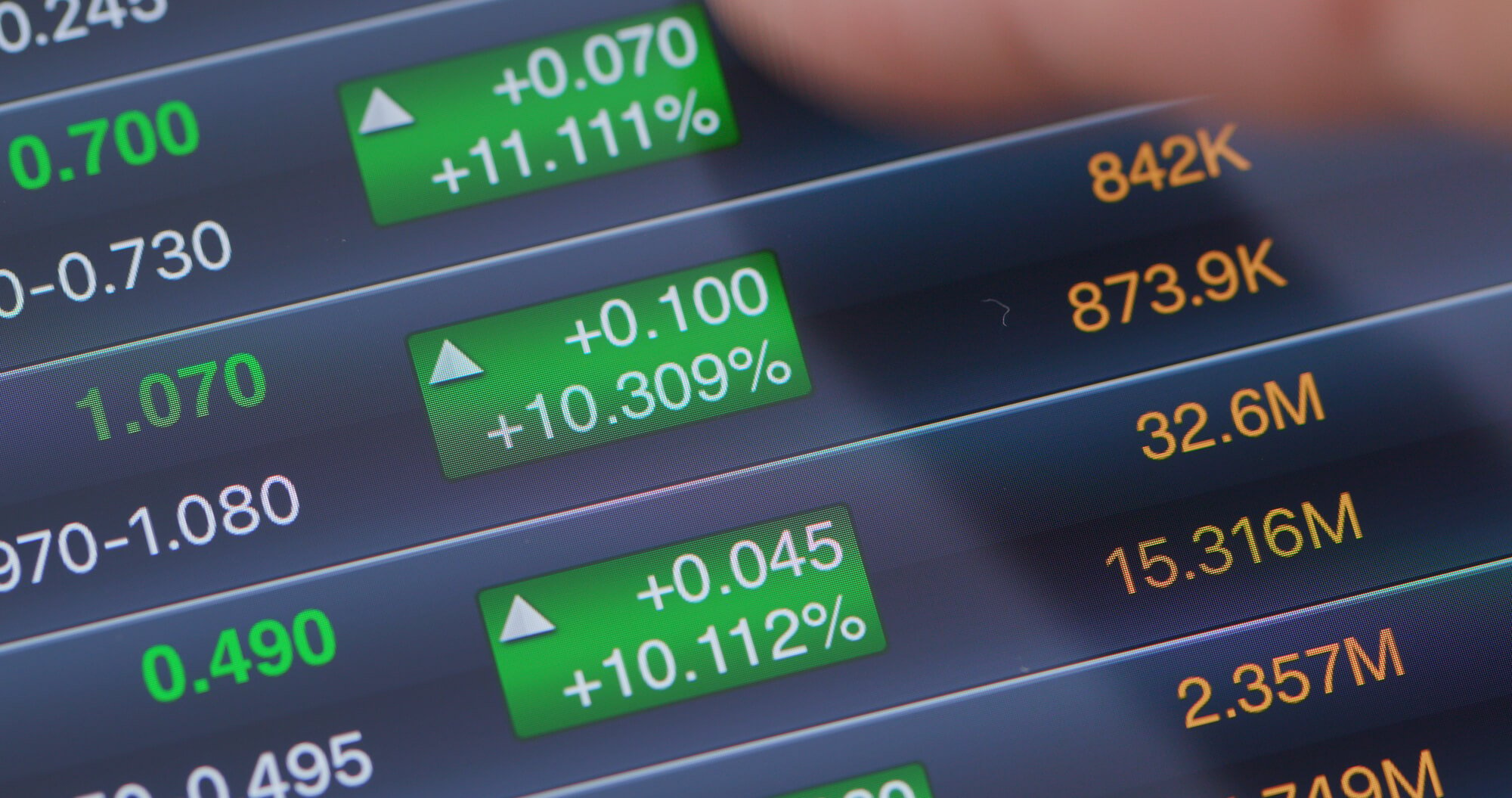
Stock dividends are a great way for investors to earn passive income from the shares of certain companies. But what are dividends, exactly? This guide will introduce you to stock dividends and explain the strengths and weaknesses of dividend stocks.

What Are Dividends?
Dividends are payments made from participating companies to their shareholders. Companies often take a portion of their profits and return them to their shareholders in the form of regular payments.
However, it’s important to remember that not every company offers dividends. Usually, dividend stocks tend to be larger, well-established companies that have the working capital to offer incentives to their shareholders.
How Do Stock Dividends Work for Companies?
There are several approaches to dividends, including:
Residual Dividends
This approach is the most basic. When the company generates a profit, it can distribute this money back to the shareholders based on the “residual,” the money left over once the company has made any necessary investments or tackled new projects.
Stable Dividends
While residual dividends depend on the company’s performance, a stable dividend is distributed no matter what. Companies can base these payments on long-range financial forecasts, and the dividend issued is usually a percentage of their anticipated earnings.
Hybrid Approach
Some companies choose to make stable dividends the norm but also offer residual dividends during seasons of peak performance. This arrangement means that investors get the benefit of stability with the hope of a “bonus” when the company meets its benchmarks.
Special Dividends
Not all dividends are recurring. Special dividends refer to payments made on a one-time basis, usually when a company chooses to distribute capital for which it has no immediate use.
Preferred Dividends
When you own preferred stock, you’re entitled to preferred dividends. Preferred stock functions a little more like a bond than a traditional stock but comes with different levels of privilege when it comes to dividend payments. Preferred dividend payments are usually fixed and are distributed quarterly.
Why Do Stocks Pay Dividends?
If stockholders already benefit from the value of the stock itself, why do stocks pay dividends? Companies use dividends to do two things.
First, dividends ensure that shareholders stick around. When shareholders receive regular dividend payments, they’ll be more likely to stick with the company even if the price of the actual shares fluctuates with the market.
Second, dividends are a good way to entice new investors to a company. When share prices stagnate, dividends can encourage investors to jump on board with a company that pays its shareholders a steady stream of dividends. This setup can actually benefit the company by raising its share price thanks to the influx of new investors.
How Do Dividends Work for Shareholders?
How do stock dividends work? When you invest in a dividend stock, you’ll receive regular payments that mirror the number of shares you own in the company.
So for instance, if you own 25 shares of Company X, and they pay a dividend of $4 per share per year, your total dividend payments will be equal to $100 (25 x $4).
How Often Are Dividends Paid?
The frequency of dividend payments varies by company, but most American corporations make quarterly dividend payments to their shareholders. Others may pay their shareholders on a monthly or even annual basis.
Keep in mind that dividends are not necessarily guaranteed. If a company does not perform well during a given period, it may not have significant profits to share with its stockholders, which means that you won’t receive a dividend payment until the business stabilizes.
Additionally, some investors receive preferential treatment when it comes to dividends. Cumulative preferred stockholders, for example, are entitled to dividend payments even if the company has missed payments in the past.
Once dividend payments resume, these shareholders will receive all of their missed payments before any other shareholder receives a dividend.

Who Determines the Amount of the Dividend?
How do dividends work within the company that offers them? Every dividend payment must be approved by the company’s board of directors. They will decide on how much the dividend will be, how often the dividend will be paid, and the ex-dividend date.
The board can also decide not to offer dividends during periods when the company is not performing as expected.
What Is the “Ex-Dividend Date?”
Investors must own the stock by a specific date in order to receive the dividend. This date is what’s known as the “ex-dividend date.” For example, if the ex-dividend date is July 31, then investors must purchase shares of that stock before that date in order to qualify for dividend payments.
If you currently own shares of dividend stock but sell your shares after the ex-dividend date, then you still qualify for dividend payments since you owned the shares prior to the ex-dividend date.
What Are Dividends Usually Paid in?
Dividends are typically paid in cash, but this isn’t the only type of dividend available. It’s also common for companies to pay their investors with additional shares of stock, though there are some other specialty types of dividends as well.
Types of Dividends
How does a dividend work? The exact answer to this question depends on the type of dividend you look at. Here are some of the most common types of stock dividends:
Cash Dividends
Cash dividends are easily the most common type of dividend. Investors will receive payments directly into their brokerage account based on the size of the dividend and the number of shares they hold.
Stock Dividends
In other cases, companies pay their shareholders with additional shares of stock. This setup can actually be beneficial, especially if the shares of stock become more valuable over time than a one-time dividend payment.
Dividend Reimbursement Programs (DRIPs)
Some companies pay cash dividends but allow investors to reinvest that cash back into the company. This arrangement is known as a Dividend Reinvestment Program, or “DRIP.” Participation is optional but gives shareholders an easy way to regularly increase their investment.
How Does a Dividend Work to Make Me Rich?
What are dividends going to do for your investment portfolio? Dividends provide passive income, which means you’ll earn money without doing anything other than holding on to these stocks.
Some boast of using dividend payments to cover luxury vacations or their retirement years, but you typically have to make a substantial investment before you earn enough from dividend payments alone.
Before you jump at the chance to invest in dividend stocks, you might want to consider the pros and cons of stock dividends.
Advantages of Dividends
On the plus side, dividends offer many advantages, including:
- A regular source of passive income
- Dividend stocks are typically large companies that stabilize your portfolio
- Dividends can be consistent even in a volatile market
With the right combination of dividend stocks, investors can leverage these payments into big earnings.
Disadvantages of Dividends
At the same time, there are several drawbacks to dividends, including:
- Dividend payments aren’t always guaranteed
- Dividend stocks tend to be larger companies with limited growth potential
- Dividend payments may be small compared to other investment opportunities
- Company boards can suspend or withhold dividends without warning
For these reasons, dividend stocks can be a worthy addition to a well-balanced stock portfolio but won’t offer the kinds of explosive growth that comes from startups.

Invest Smarter, Invest Better
Every investor needs the right tools to make smart investments. Gorilla Trades members gain access to more content like this article, in addition to advanced tutorials and stock research tools to help you invest like a pro. Sign up today, and you’ll receive 30 days of free stock alerts so you can see the difference a trusted advisor can make.
